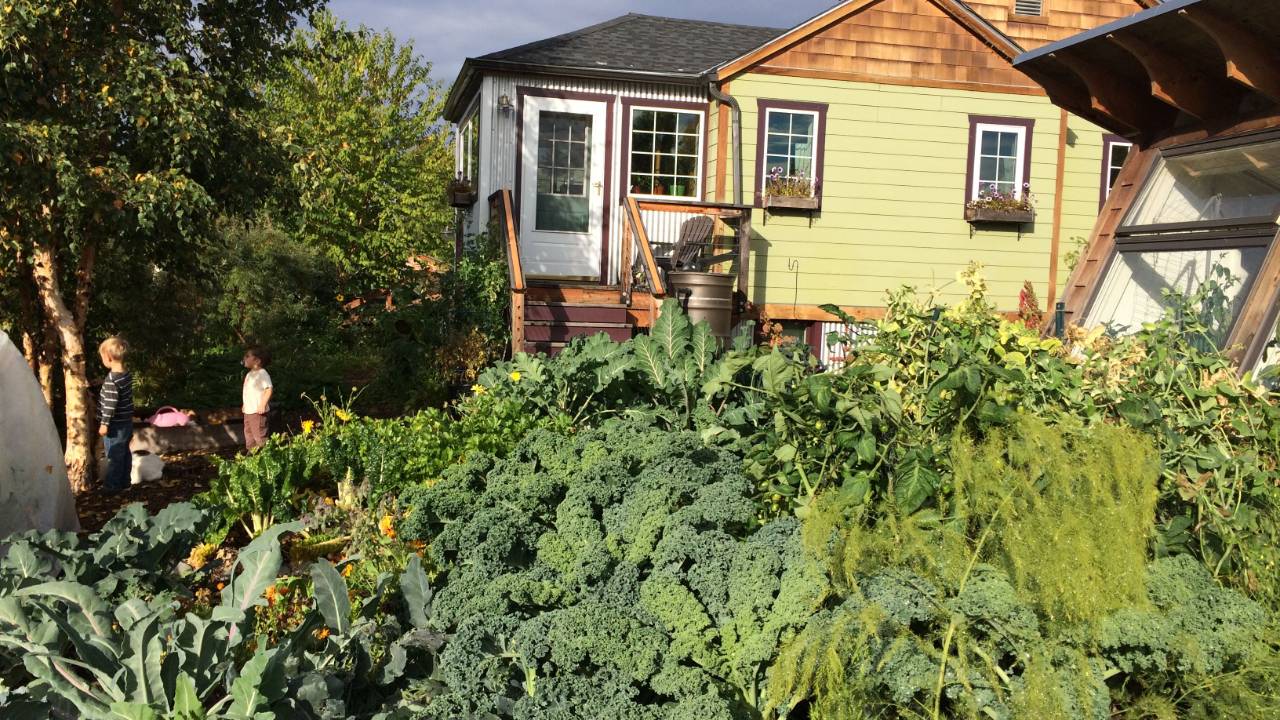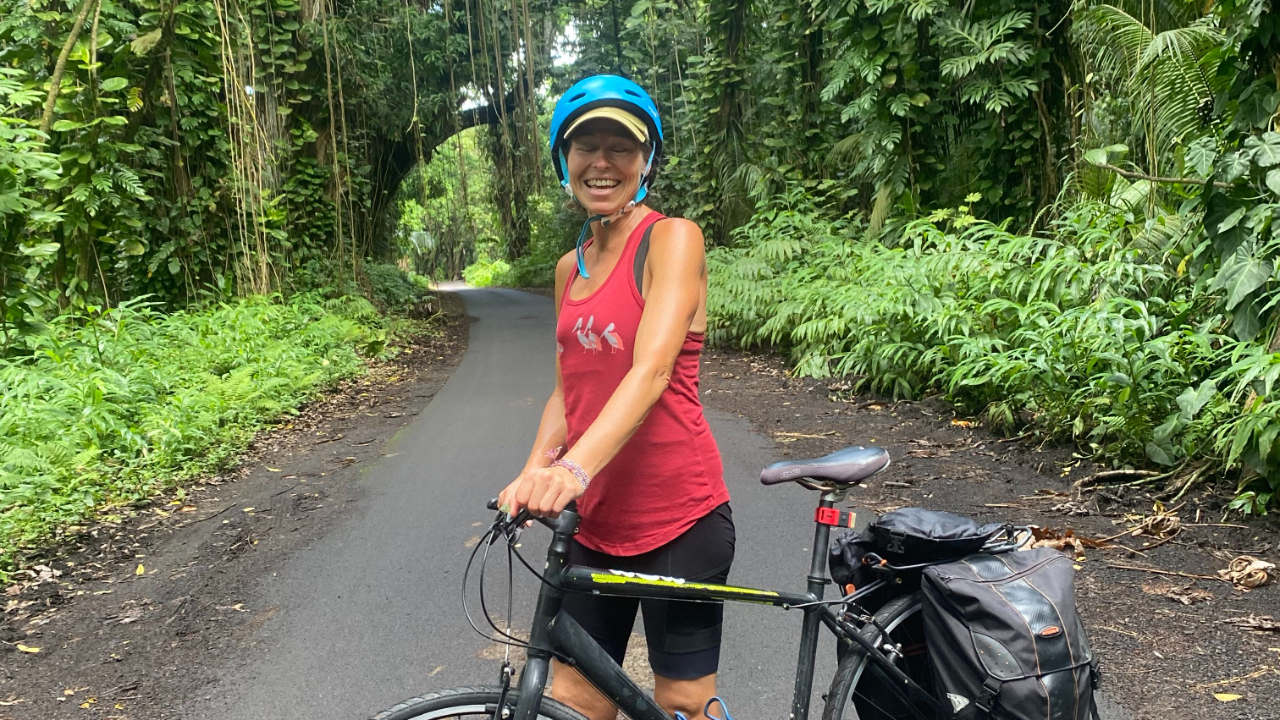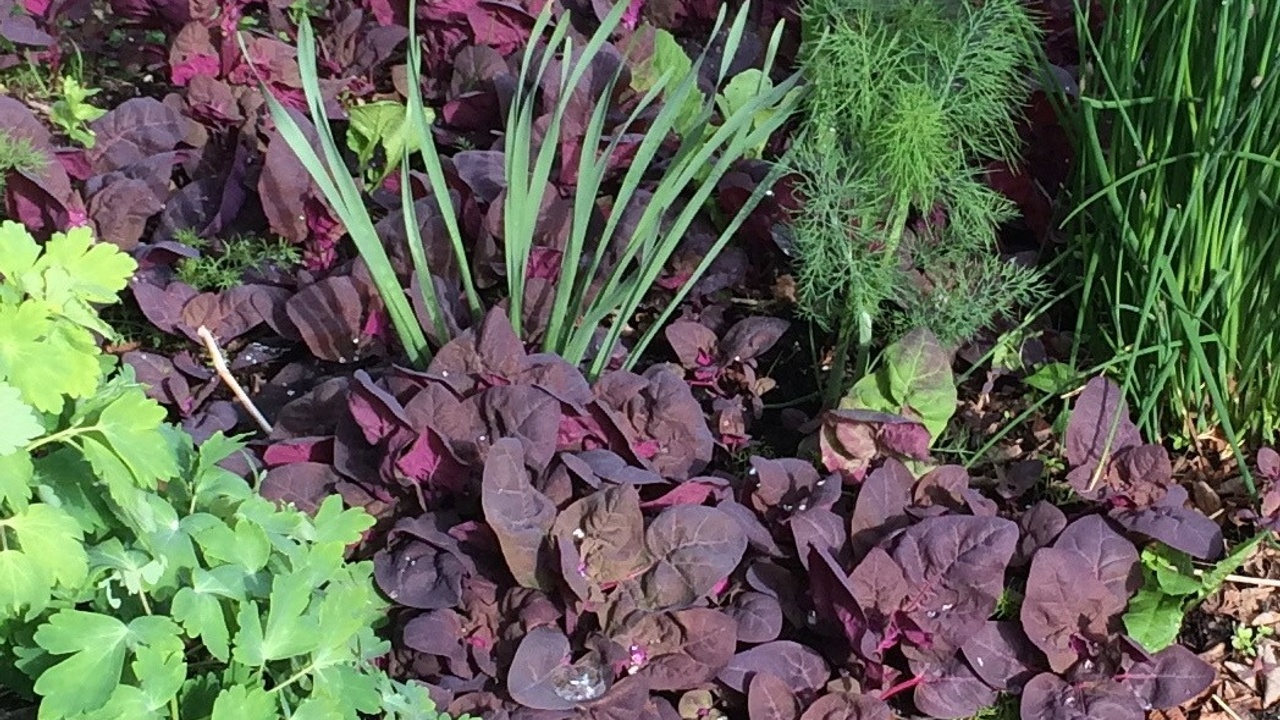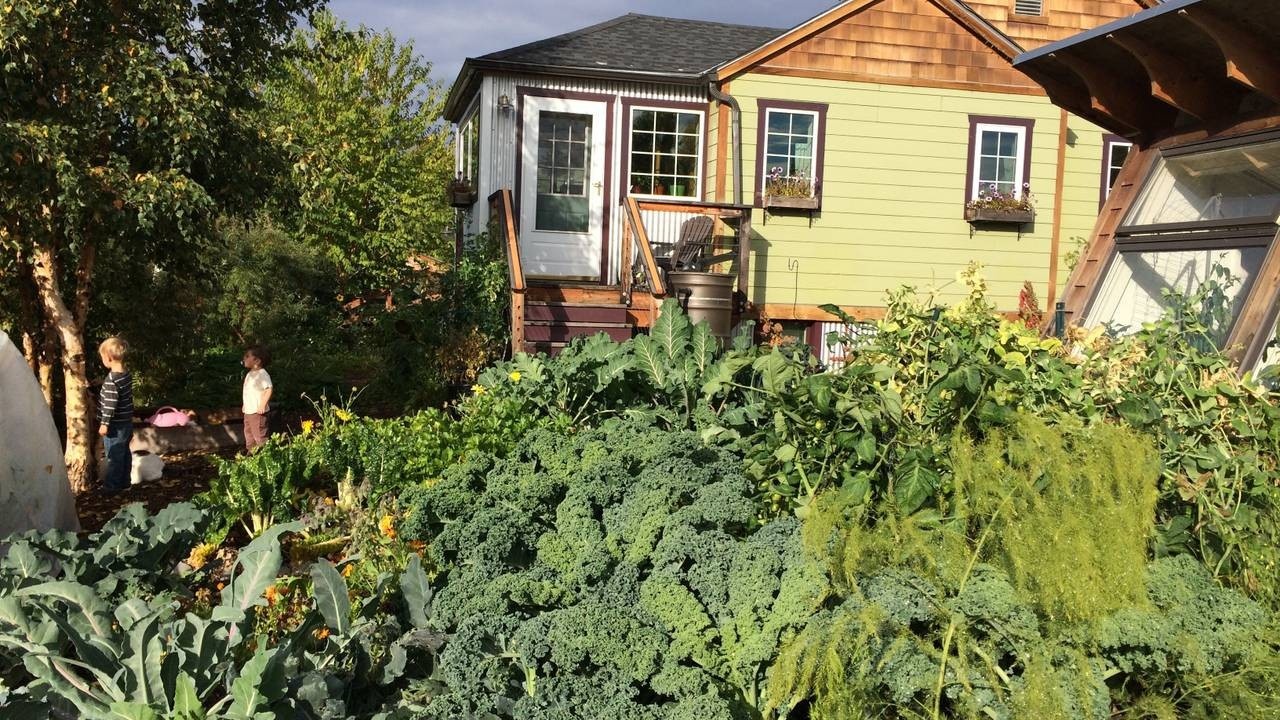Finding Space to Garden

How much space do you need to grow a regenerative garden? Not much. Any little bit of land will do. And you don’t even need to “own” it. You can become a steward of land in many ways.
Many people have all the space they need already in their suburban yard. A regular lot usually has plenty of space to grow a ton of vegetables, keep small livestock such as chickens, ducks, quail, or rabbits for eggs or meat, herbs for tea and medicine, flowers for beauty, and calorie-rich crops such as beans, squash, and potatoes.
In our experimental year of eating all local food, we grew as much as we could on our own 9,000 square foot lot. With relatively little existing gardens, we ramped up production in one year to harvest over 1,600 pounds of food between us and our tenants downstairs.
While this was not enough to supply all our food needs, it was a huge percentage of what we ate through the year. And our gardens were not maxed out. The apple trees and other fruit trees hadn’t even started producing yet. Our berry bushes were young and not yielding much.
The limiting factor in being able to produce more land was not space, it was time to build it out, manage it, and let it mature.
After our year of eating local food we continued to grow and eat much of our food from our garden. We harvested more fruit and berries. And everything was much easier because we knew how to do it.
You don’t need to own property in order to garden and develop a relationship with land. I have been re...
Let's talk about driving

What does driving have to do with gardening?
Well, for one thing, when I am in my garden I can hear the dull roar of cars driving along East End Road. It is amazing how much noise a car makes when it is driving 45mph. Trucks and motorcycles are even worse!
I don't even live that close to the road. I can imagine how not relaxing it would be to garden if I lived right next to a busy street. Not to mention breathing all those toxic fumes. Diesel is stinky and our bodies instinctively know to avoid it, but gasoline fumes are just as toxic, we just can't smell them.
No wonder many people don't like to be outside! No wonder people don't want to garden!
Ironically, people move farther out of town to get some peace and quiet, creating more noise and pollution for everyone else as they drive back and forth.
But the noise and pollution aren't the most damaging part of cars. Having our lives and infrastructure built around vehicles has driven us further into separation from nature and from each other.
Throughout history, our lives have always been about our relationship with nature and with each other. We lived with the land and were interdependent with our neighbors, creating connections as we interacted in the village, on the street or in our daily lives.
Now we get into our cars, sometimes without even leaving the house. In our cars, we are separated from life and nature by our windshield and metal bubble. We can't hear the noise or smell the pollution we are creating.
...It's time to turn away from pesticides

8 Early Greens You Will Never Have to Plant Again

After a long, cold winter of eating from the cold storage and the freezer, nothing tastes better than a fresh salad. Greens are my tonic, giving me energy and vitality. I eat salads lunch and dinner and throw greens into quesadillas, soups, eggs, and more.
I always plant an early crop of hearty greens. The beauty is that these greens can withstand freezing so you do not need to wait until the danger of frost has passed. This year due to the early thaw I planted some greens on the south side of the house in February. The ground was still frozen underneath, but the hearty greens and the lettuce still came up.
But the older I get, the more I appreciate food that I don’t have to sow. I have several varieties of perennial greens as well as some self-seeding annuals. These are brilliant because they come up whenever they are ready. You don’t have to stress about planting them at the right time, or at all. They just take care of themselves. You probably already have some of these in your garden, and right now is the perfect time to plant the ones you don’t have.
- Orach. Red, purple or green, orach is a relative of spinach and self-seeds readily in the garden. It has a very mild flavor and can be eaten fresh or cooked. The purple variety looks awesome in salads, and the green variety can be used as a straight-up substitute for spinach.
- Lamb’s-quarter. Another relative of spinach, you most likely already have this green in your garden. Also known as goosefoot or fat hen, ...
Is Gardening a Privilege?

I hear it all the time... "but not everyone can garden!"
As if gardening is a leisure activity that only the wealthy people can afford.
The reality is that millions of people all over the world garden out of necessity.
Gardens and small family farms still feed over half of the population of the world.
Not so long ago, this was the only way to feed all but the very elite.
I, myself, rely on gardening to feed my kids healthy food. Just a few years ago when I was in the throes of a divorce and rebuilding my business, I took comfort in knowing that at least we wouldn't starve.
In fact, in many ways it was the gardening that got me through. When I was filled with anxiety about the future, or grief for my loss, the only thing that would bring me back was some weeding. A trip to the raspberry patch gave me strength to keep on.
Which is why I believe that gardening should be a right. We should all have access to a piece of land to grow something on.
Everywhere I have traveled outside of the US, I have seen people growing food in gardens.
In Cuba I saw vegetable gardens everywhere. Over 90% of fruits and vegetables consumed come from food gardens on just 3.4% of urban land. Havana alone has over 25,000 allotments, which produce food year-round using no chemical fertilizers or pesticides.
During my studies in Russia I passed miles and miles of dachas riding the trains out of St. Petersburg. Russians grow over 50% of their food on dachas, which comprise only 3% of the ...

